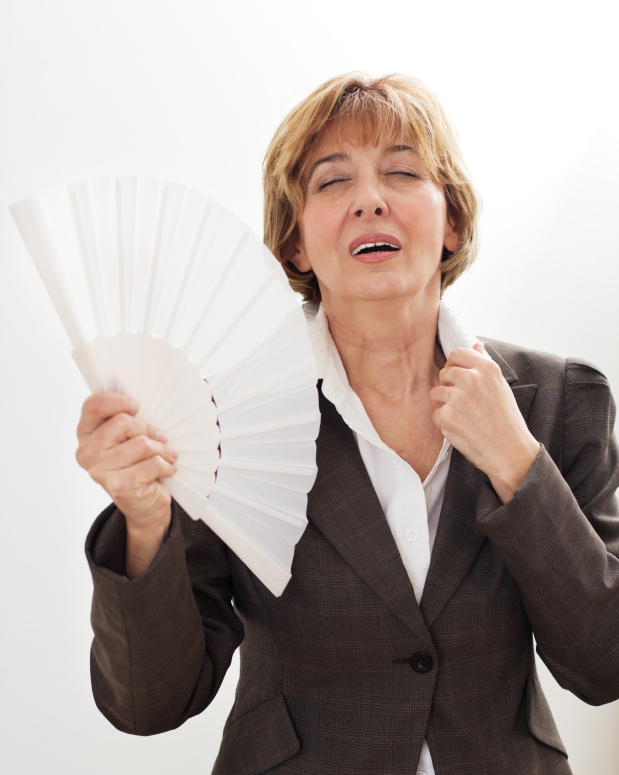The discussion of menopause inevitably seems to lead to the subject of hot flashes, a common symptom of the transition through peri menopause, menopause and post menopause.
Hot flashes, a sudden feeling of heat in the upper part of the body, often occur at night and can be followed by heavy sweating or chills. Women frequently experience these flashes as the age of their last period approaches, on average around 51, and sometimes for several years following.
It is believed changes in the levels of the estrogen and progesterone hormones, produced by the ovaries, may contribute to menopausal symptoms including hot flashes, sexual changes, sleep disturbances, mood changes and vaginal and bladder health.
Hot flashes, while a nuisance, are not necessarily something that needs to be treated medically. Some women experience very mild menopausal symptoms while others find the journey more unpleasant and disruptive.
Tips For Managing Hot Flashes:
- Try to journal the episodes and note any triggers to avoid (spicy food, alcohol, caffeine)
- Dress in layers that can easily be removed during a hot flash
- Natural fabrics that breath may be cooling, sheets and clothing included
- Sleep in a cool room, use a fan if needed
- Talk with your doctor about phytoestrogens, plant estrogens found in foods such as soy
- Take a cold drink as you feel a flash coming on
- Avoid smoking
- Studies have shown that Vitamin E may reduce night sweats and hot flashes
- Exercise many help alleviate symptoms but not directly before bed
- Weight loss and stress relieving activities may also help symptoms
- Speak with your doctor about hormone replacement therapy or other medications used for severe symptoms
Sources: National Institute on Aging and The Mayo Clinic
Always talk with your doctor before taking any supplements or over-the-counter treatments for hot flashes or other symptoms of menopause.






Add Your Voice
0 Comments
Join the Discussion